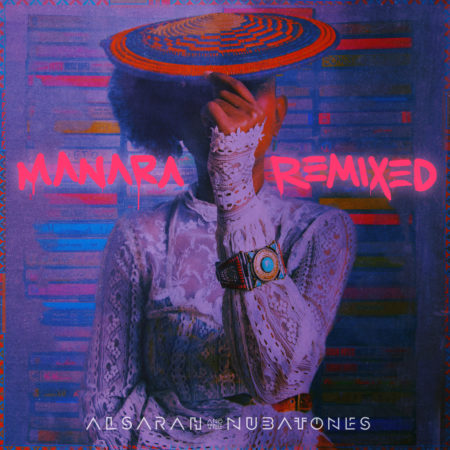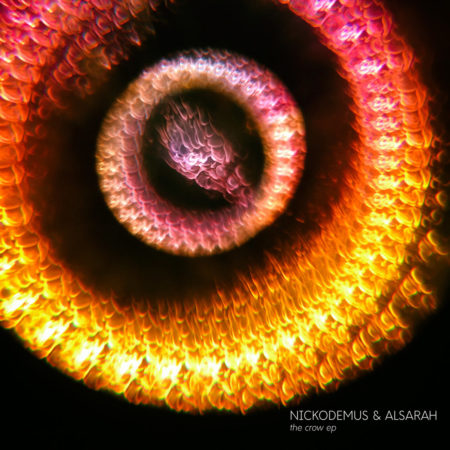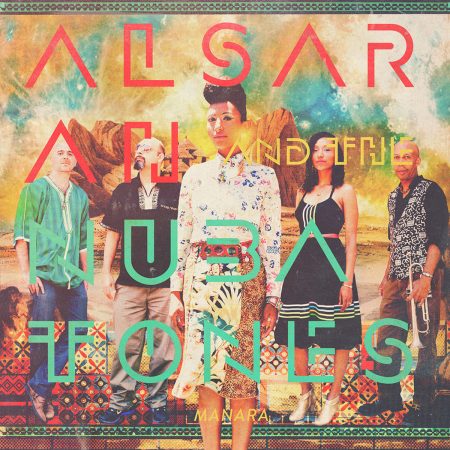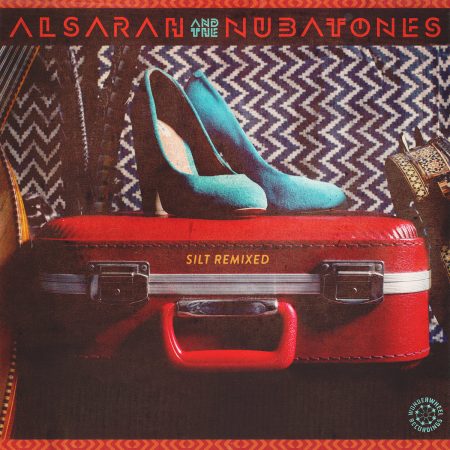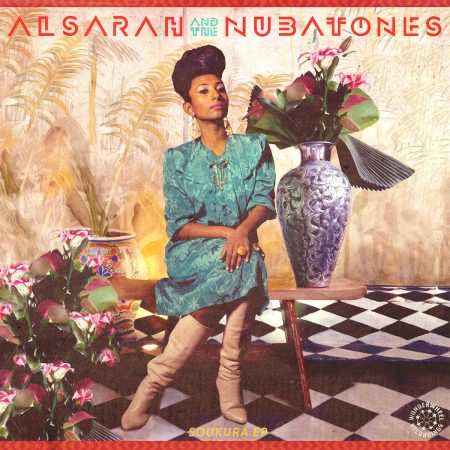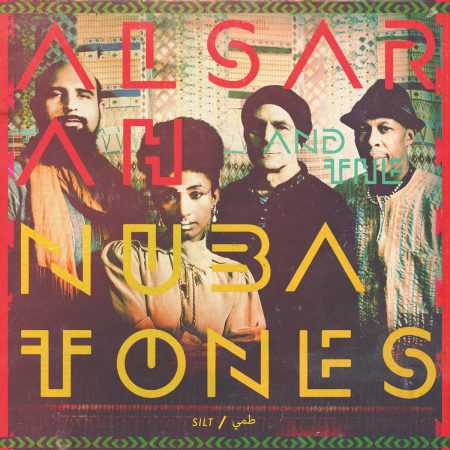
Wonderwheel Recordings is proud to present the debut album, Silt, from Sudanese singer Alsarah and her band the Nubatones. Called “The New Star Of Nubian Pop” by The Guardian, the album was produced solely by Alsarah who describes the sound of Silt as “East African Retro Pop” – it’s music that harkens back to the hazy sounds of 1960s and 70s Nubian music with it’s Eastern instrumentation, soaring vocal melodies, and pentatonic arrangements.
The album has it’s musical roots in the Nubian “Songs of Return” that began to spring up after mass displacement and resettlement of hundreds of thousands in a region of lower Nubia that went under water after Egypt built Aswan High Dam to control the flooding of the Nile in 1970. The focus of these songs, both thematically and lyrically is about a return to home and the beauty of home and embodies a certain kind of saudade – a nostalgic longing for a place that no longer exists. The album encompasses Alsarah and her band’s musical curiosities in the concept of migration and Silt is their take on this mixed with the musical fusion happening in 1970s Khartoum, along with Arabic and North African influences appearing in the mix.
Alsarah, is a Sudanese born singer, songwriter and ethnomusicologist. Born in the capital city of Khartoum, where she spent the first 8 years of her life, she relocated to Taez, Yemen with her family to escape the ever stifling regime in her native country. She abruptly moved to the US in 1994, when a brief civil war broke out in Yemen. Now residing in Brooklyn, NY, she is a self-proclaimed practitioner of East-African retro-pop. Working on various projects, she most recently has been working with The Nile Project and was featured on their debut release, Aswan (named 1 of the Top 5 “Must Hear” international albums by NPR). She has also collaborated with French producer Débruit on the album Aljwal, released this past November via Soundway Records UK.
The Nubatones started out as dinner conversation between Alsarah and percussionist Rami El Aasser in his living room, digging thru archives of old music from North Africa, and reading about migration patterns in modern day Nubia, Soon the conversation opened into a musical one and spread to include master Oud player and Luthier Haig Manoukian and bass player Mawuena Kodjovi. With a collective love for pentatonic music and a common understanding of what it means to be an immigrant, the group went on to perform both nationally and internationally at prestigious venues such as The Kennedy Center, The Apollo Music Cafe, Celebrate Brooklyn at Prospect Park, The World Music festival in Chicago, and the Festival du Mond Arab in Montreal just to name a few.

